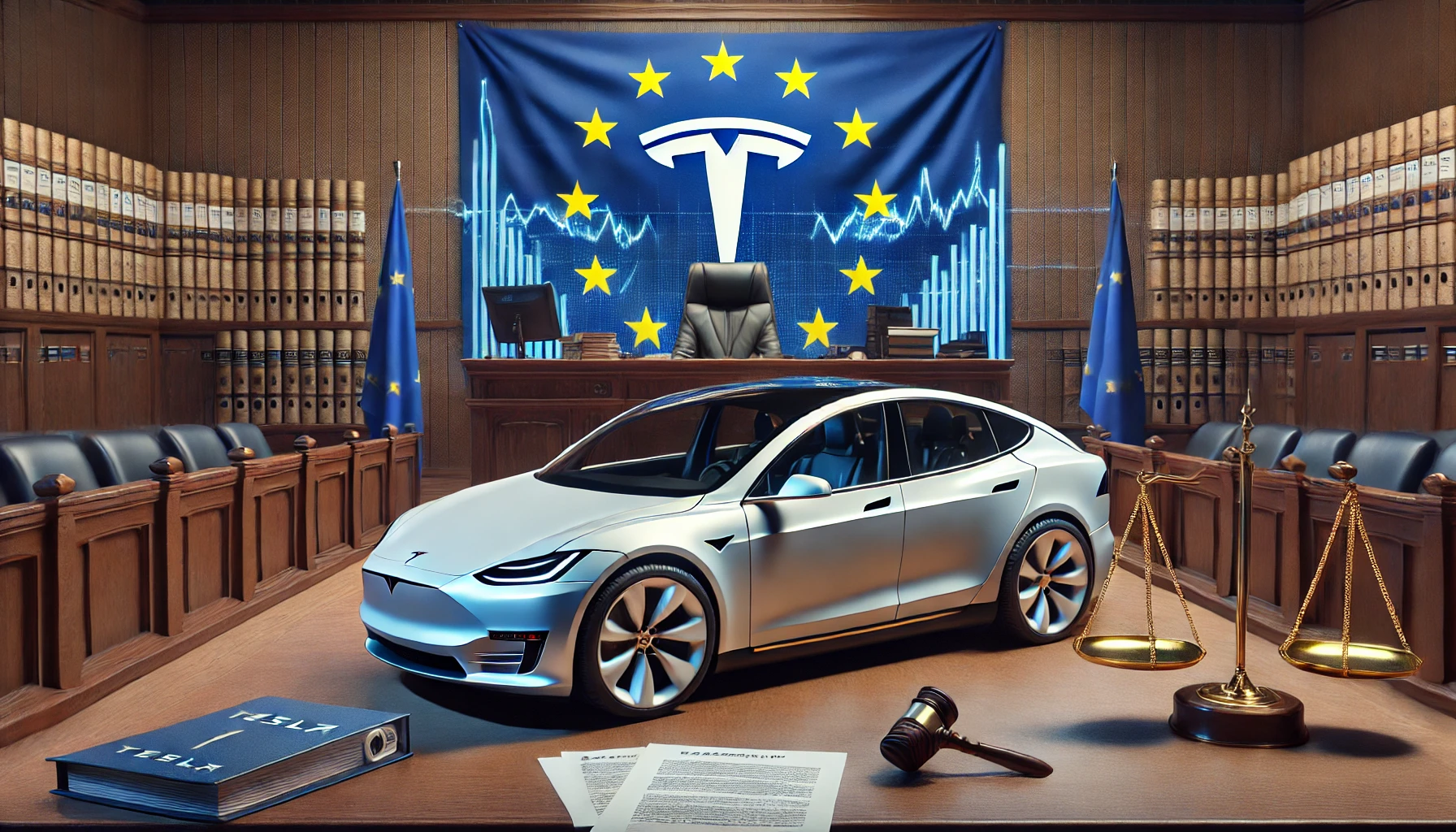Tesla Challenges EU Tariffs on Chinese-Made Electric Vehicles

In a significant legal move, Tesla has filed a lawsuit against the European Union (EU), contesting the imposition of anti-subsidy tariffs on electric vehicles (EVs) imported from China. This action underscores the escalating tensions between global automotive manufacturers and regulatory bodies over trade practices and market access.
Background of the Tariffs
In October 2024, the EU introduced anti-subsidy tariffs ranging from 7.8% for Tesla to 35.3% for other Chinese EV manufacturers. These tariffs were implemented in addition to the standard 10% import duty applicable to the automotive industry. The EU’s decision followed an investigation initiated in 2023, which concluded that Chinese EV producers benefited from unfair advantages, including:
- Soft Loans: Access to financing with preferential terms.
- Subsidized Land Deals: Acquisition of land at below-market rates.
- Supplier Subsidies: Financial support to key suppliers, such as those in the steel industry.
These measures aimed to level the playing field for European manufacturers facing competition from subsidized Chinese imports.
Tesla’s Legal Standpoint
Tesla’s lawsuit, filed by its Shanghai subsidiary, challenges the EU’s decision to impose these tariffs. While specific legal arguments have not been publicly disclosed, the company’s action suggests a contention that the tariffs are unjustified or improperly applied. Notably, Tesla received the lowest tariff rate of 7.8%, following an individual assessment by the EU that determined it benefited least from Chinese government support among its peers.
Impact on Tesla’s Operations
The imposition of tariffs has prompted Tesla to reassess its import strategies for the European market:
- Model 3 Imports: Previously, Tesla imported its Model 3 vehicles from its Shanghai Gigafactory to Europe. The additional tariffs may affect the pricing and competitiveness of these imports.
- European Production: Tesla’s Berlin Gigafactory currently manufactures the Model Y. The company may consider increasing local production to mitigate the impact of import duties on its supply chain and pricing strategies.
Broader Industry Implications
Tesla’s legal challenge is part of a wider response from the automotive industry:
- Other Lawsuits: German automaker BMW and several Chinese car manufacturers have also filed similar lawsuits, indicating a collective pushback against the EU’s trade measures.
- Market Dynamics: Approximately 20% of all EVs sold in the EU in the previous year—totaling around 300,000 units—were manufactured in China. Tesla accounted for 28% of these Chinese-made EV imports, leading the segment. The tariffs could reshape sourcing decisions, pricing, and the competitive landscape within the European EV market.
Regulatory and Political Context
This legal dispute occurs amidst complex geopolitical and regulatory dynamics:
- EU’s Stance: The European Commission has expressed its readiness to defend its position in court, emphasizing the need to address perceived unfair trade practices and protect the interests of European manufacturers.
- Elon Musk’s Position: Tesla’s CEO, Elon Musk, serves as an advisor to U.S. President Donald Trump and has been a vocal critic of EU technology regulations. His political engagements and outspoken nature add a layer of complexity to Tesla’s interactions with European regulators.
Conclusion
Tesla’s lawsuit against the EU represents a critical juncture in the intersection of international trade, regulatory policy, and the rapidly evolving electric vehicle industry. The outcome of this legal battle could have far-reaching consequences for global automotive trade practices, the strategic decisions of multinational corporations, and the regulatory frameworks governing international commerce.
